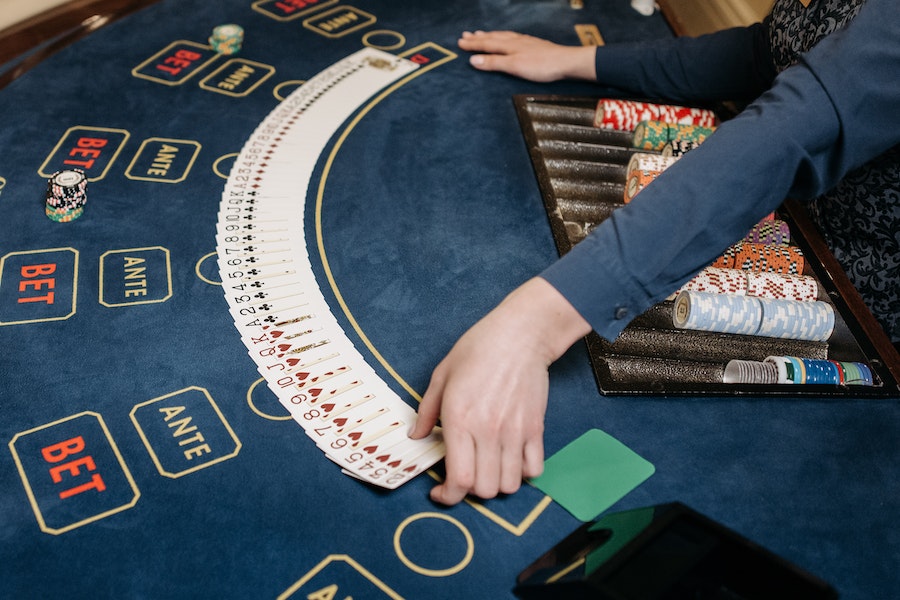
In the world of gambling, where chance and strategy converge, a unique tapestry of beliefs manifests—one that weaves together luck, fate, and the enigmatic nature of casino games. Casinos, bustling with excitement and anticipation, are not just spaces for placing bets; they are also arenas where superstitions thrive. Ranging from the novice player to the seasoned gambler, these mysterious practices often shape how individuals approach the games they play, holding the belief that their actions can affect the outcome in ways that go beyond mere probability.
When players gather around roulette wheels, blackjack tables, and slot machines, the atmosphere is thick with stories of lucky charms, rituals, and codified behavior that defy logic yet provide a sense of comfort. Whether it’s wearing a specific outfit, following a particular sequence of bets, or even avoiding certain numbers, the attachment to various superstitions reflects a deep-rooted desire to control the uncontrollable. This article delves into the captivating world of casino game superstitions, examining the beliefs that both entertain and mystify those who dare to play.
Cultural Origins of Superstitions
Betting games have long been entwined with an host of superstitions that trace to early cultures. The beginnings of these beliefs can be connected to humanity’s intrinsic desire to manage the random outcomes related with chance and randomness. In early civilizations, activities of uncertainty were often connected to religious practices. SHBETS.NET Gamblers would seek aid or ask for favor from deities, believing that their actions could influence the outcomes in their benefit. This groundwork laid the groundwork for the multitude of superstitions that proliferated as gambling evolved over time.
During the medieval period, gambling became a common pastime across the continent, and with it, a colorful tapestry of superstitions emerged. Players adopted numerous rituals and charms, believing they could affect the consequences of games. The importance of digits, in particular, started to manifest in superstitions related to card games and dice. The number 7 was often considered lucky, while different numbers carried bad connotations. These beliefs mirrored the cultural contexts of the time, changing as they moved through generations and adapted to emerging gaming environments.
As gaming establishments appeared in the 17th century, particularly in Italy and the French nation, the atmosphere surrounding betting became imbued in enigma. The growing openness of gambling activities allowed for the spread and variation of superstitions among players. Concepts like fortunate charms, designated seating positions, and rituals gained prevalence, creating a unique culture within gambling establishments. As these traditions continued to thrive, they became fundamental to the character of gambling games, illustrating how the past and culture shape the convictions that influence how participants interact with fortune.
Common Gambling Myths
Beliefs surrounding casino games are plentiful and diverse, reflecting the hopes and anxieties of gamblers as they participate in random games. One of the most common beliefs is that specific numbers bring luck or misfortune. For example, the digit seven is often seen as a lucky number, frequently sought after by gamblers looking for a positive result. Conversely, the number 13 is routinely considered unlucky, leading many gamblers to steer clear of it during their gaming sessions.
Another frequent superstition relates to rituals that players believe can influence their odds. It could be blowing gently on the dice before a roll, using a particular gesture to place a wager, or even putting on particular items of clothing, many people feel that these actions can tilt fate in their favor. These practices offer a sense of control in an otherwise unpredictable environment, strengthening the idea that luck can be manufactured through personal convictions and customs.
Finally, the environment and atmosphere of the gambling house itself adds to myths. Many players suggest that the presence of certain icons, such as four-leaved clovers or fortunate coins, can enhance their odds of winning. Additionally, players might adhere to the belief that winning streaks can be interrupted by mundane occurrences, such as a person walking past or a spill at the gaming surface. The collective atmosphere in a gambling house can amplify these superstitions, creating a shared culture of myths that goes beyond single experiences.
Impact of Superstitions on Players
Superstitions play a important role in the mindset of casino players, often influencing their behavior and decision-making. Numerous gamblers think that luck can be influenced through various rituals, such as donning a talisman, choosing particular hues, or steering clear of particular digits. This reliance on superstitions can create a feeling of control in an environment that is inherently unpredictable. Players often feel more self-assured and engaged when they think that their actions could sway the result of a game in their favor.
The impact of these superstitions extends past individual players, affecting the general atmosphere inside the casino. For instance, a player who holds the belief in the luck of a particular slot machine might draw a crowd, as others are fascinated by their apparent luck. This collective belief can amplify excitement and create a lively environment, leading to an interesting experience even for those who may not necessarily be believers themselves. The buzz around specific games can lead to increased participation and longer playing sessions, supporting the casino’s vibrant social scene.
In some instances, superstitions can lead to harmful effects for players. Relying too much on rituals can result in poor gambling decisions, as some may overlook basic strategies in favor of baseless beliefs. Additionally, the stress to perform rituals may heighten anxiety and tension, diminishing from the pleasure of the experience. Ultimately, while superstitions can enhance the excitement of playing casino games, they can also lead to poor choices that overshadow the enjoyment and entertainment intended in the casino experience.
